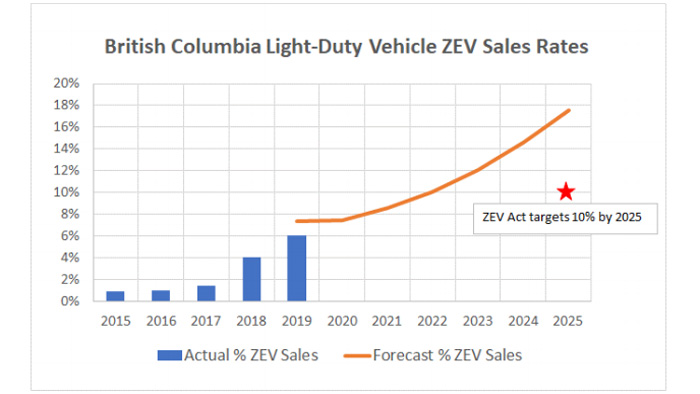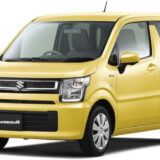
British Columbia to restrict new light-duty sales to zero-emission vehicles by 2040
British Columbia passed the Zero-Emission Vehicles Act (ZEVA) on 29 May, which will require all new light-duty vehicles sold in the Canadian province to be zero-emission vehicles by 2040. Zero-emission vehicles include battery electric, plug-in hybrid and hydrogen fuel-cell vehicles. This target will be met using a phased-in approach: 10% of new light-duty vehicle sales by 2025, 30% by 2030 and 100% by 2040.
This means all new light-duty cars and trucks sold in the province will be clean energy vehicles by 2040, delivering on a key commitment the government made in its CleanBC plan.
British Columbians are already buying the most zero-emission vehicles per capita in Canada. In the first quarter of 2019, they made up more than 6% of new light-duty vehicle sales in B.C. Due to the popularity of its CEVforBC rebate program, the government recently topped up the incentives with another CAD10 million (USD7.4 million), part of the CAD42 million (USD31 million) that was committed in Budget 2019.
“With federal and provincial rebates now in place, switching to an electric vehicle is more affordable than ever,” said Michelle Mungall, minister of Energy, Mines and Petroleum Resources. “The Zero-Emission Vehicles Act will make sure British Columbia continues to be on the forefront of the clean energy revolution.”
“By requiring that a percentage of vehicle sales in B.C. be zero-emission models, automakers will respond to the demand by offering consumers more choices,” said George Heyman, minister of Environment and Climate Change Strategy. “Along with greener options like transit, the increased adoption of zero-emission vehicles will help lower emissions in our transportation sector.”
The government’s commitment to bring in a ZEV mandate was announced on 20 November 2018 and ZEVA was introduced in the legislature on 10 April 2019.












